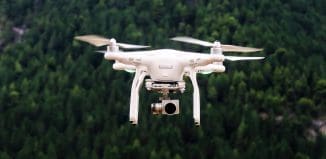2015 Will Be Remembered As A Turning Point In Israeli Robotics
This post is also available in:  עברית (Hebrew)
עברית (Hebrew)
Olga Grosman
Professor. Zvi Shiller is the Chairman of the Israeli Robotics Association, a professor at the Department of Mechanical Engineering and Mechatronics Faculty of Engineering at Ariel University and head of the laboratory of robotics and autonomous vehicles.
There is no limit to using robots. They can be applied to all fields of life, in anything requiring movement, said Prof. Zvi Shiller during an interview about the development in the field of robotics. The field, he says, is taking giant steps forward all over the world, mostly due to the interest from giant companies such as Amazon, Google and Apple. In Israel, 2015 will be remembered as the year when efforts were increased to advance the robotics industry in Israel.
Robotics is appearing to be a solution for many diverse needs. Finding solutions for treating the elderly population or coping with the constant rise of manpower costs. Shiller claims that these changes arent exclusive to the West, as China has also started seeing the field as a means to develop its industry.
As for Israel, Prof. Shiller claims that it is one of the worlds leaders in the field of robotics, with some breakthrough products which iconic on an international level, whether in the field of defense, medicine or the industry. There are quite a few Israel products, each one top of its field in the world, such as the REWALK system, a robotic exoskeleton that helps people in wheelchairs get up and walk. Israel is known as a technological, start-up and hi-tec power, and the robotics industry is based on these fields. Foreign investors see it as well and are looking to be part of this success, as they appreciate the Israeli industrys innovation and creativity.
The problem with Israel, however, is that its markets are across the sea, thus it has no direct contact with them. Each Israeli entrepreneur has to invest quite a bit to market their products in international markets. China, on the other hand, has a massive local market, and if you combine the knowledge and technology with a massive market – it is basically the ideal connection. It is a win-win situation both to Israel and China, he explained.
Shiller believes that it is important to develop products that improve and assist everyday life, like with the elderly. These robotics technologies should be used to help people who need that help. An example would be the Minivator, a walker that can climb the stairs with no effort on the users part, developed at the Ariel University. Another robotic solution is a robot the helps getting in and out the bathtub. These products apply the term robogood, which Prof. Shiller tries to advance with his students.
In the future, he explains, service-bots are expected to be a main part of the field. In the work and industry markets, some people do mechanical work such as carrying heavy loads, but there is no reason a robot shouldnt replace a person in such physical labor and rid them of the difficulty and health risks. That way people will move gradually from physical labor to jobs that require use of their thinking abilities.
And what of the dangers in robotics? Technology brings with it not only progress and efficiency, but it can also be dangerous if not properly produced, or is used for the wrong purpose. This is also true of weapons, Shiller says. In extreme circumstances it is possible that technology can do harm, but the lives it could save, like with autonomous vehicles, will be many more than the ones damaged.
So will robots make us lazy? Prof. Shiller thinks that robots will replace us in doing the tasks we dont feel like doing after a long day of work and clear us some more time to spend with our families and to rest.






























